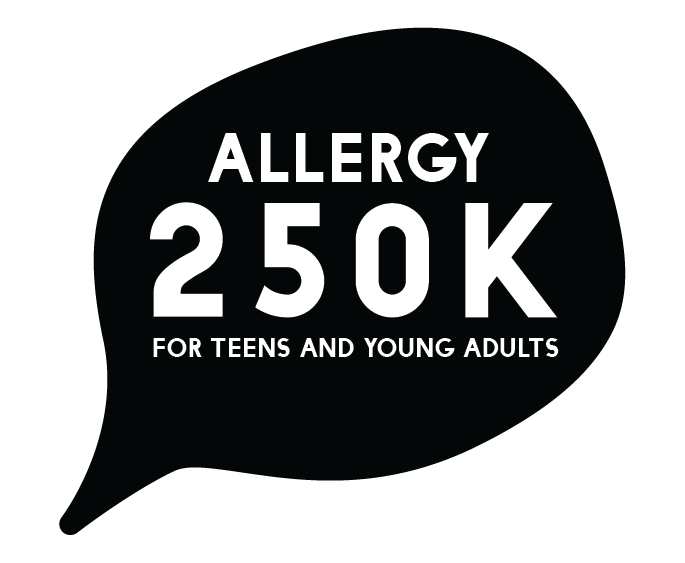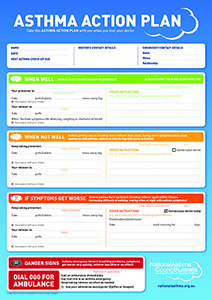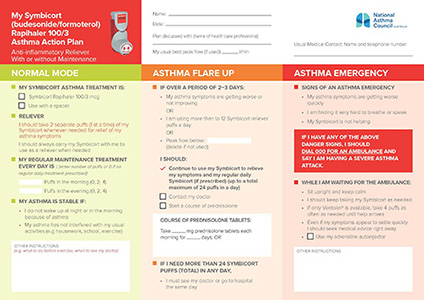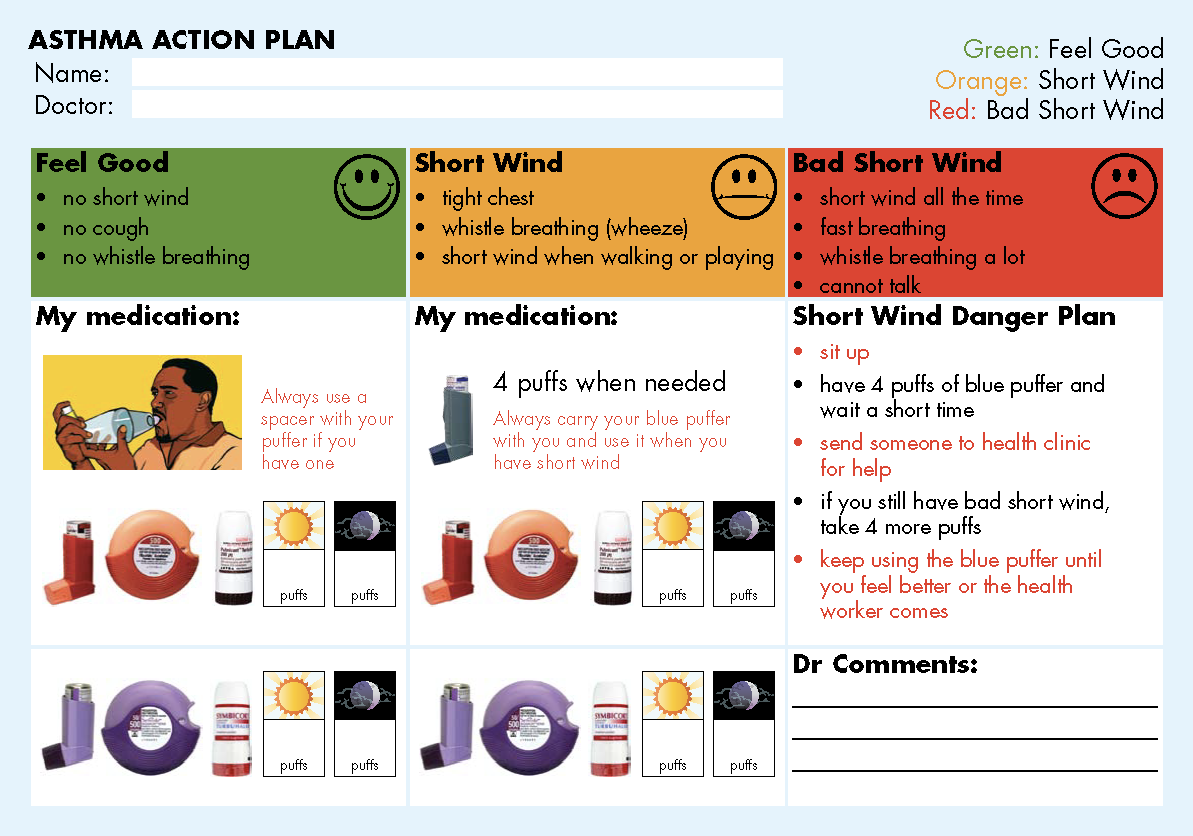Managing Asthma
Listen Now
Top Tips
- Make sure you have good asthma control.
- Always carry your asthma reliever medication with you if you have asthma.
- If you are unsure if you are having anaphylaxis or asthma – lay down or sit with legs outstretched if breathing is difficult, use your adrenaline injector first, then your asthma reliever and call an ambulance. Follow instructions on your ASCIA Action Plan.
What is asthma?
Asthma is a medical condition that affects a person’s airways. When someone is having an asthma flare-up, their airways become narrower, making it harder for them to breathe. There is no cure for asthma, but asthma can usually be well controlled.
The most common asthma symptoms include:
- Wheeze (a high-pitched sound coming from the chest) when you breathe out.
- Persistent coughing – especially at night.
- A feeling of not being able to get enough air.
- Being short of breath.
- A feeling of tightness or heaviness in the chest.
Managing Asthma
To have good control of your asthma, you need:
- To use your asthma medications properly.
- Have regular medical check-ups.
- An Asthma action plan so you know how and when to manage an asthma flare-up.
There are two main asthma medicines – relievers and preventers.
Relievers should be carried with you at all times if you have asthma. They are an immediate treatment to help you breathe properly when you are having an asthma flare-up.
Preventers are a daily treatment to reduce the risk of an asthma flare-up in the future.
There are also some asthma medications that have the “reliever” medication and “preventer” medication in the same device. You use these daily as a preventer, but then you can use more as a reliever if needed.
Using your preventer or reliever properly is important to make sure you get the full benefit of the medication. Ask your doctor or nurse practitioner to show you how to use your asthma medications properly.
Good asthma control
You have good asthma control if:
- Your activities are not limited at all by your asthma. This includes exercise.
- You do not have any asthma symptoms during the night (e.g. no night time coughing).
- You only have daytime symptoms on two or less days per week.
- You only use reliever medication on two or less days per week.
- Symptoms go away quickly once you have used your reliever medication.
Asthma and allergies
People with allergies, including those at risk of anaphylaxis, commonly have asthma as well. It is important that you have good asthma control if you are at risk of anaphylaxis. If you don’t have good control of your asthma, you are more likely to have difficulty breathing sooner and more severe if you have an anaphylaxis. If you have an anaphylaxis, it is more difficult to reverse the reaction if your asthma is not well controlled. Make sure you are using your preventer medications as directed by your doctor or nurse practitioner so that your asthma is well controlled.
If you think your asthma is not well controlled, please make time to see your doctor.
You should also carry your asthma reliever medication with your adrenaline injector wherever you go. Make sure you have a copy of your ASCIA Action Plan and your Asthma Action Plan as well. These will make sure other people know what to do if you have an allergic reaction or asthma symptoms.
ASTHMA ACTION PLANS
Need further information?
If you need help, contact one of the organisations below;
Australasian Society of Clinical Immunology and Allergy (ASCIA)
National Asthma Council Australia



